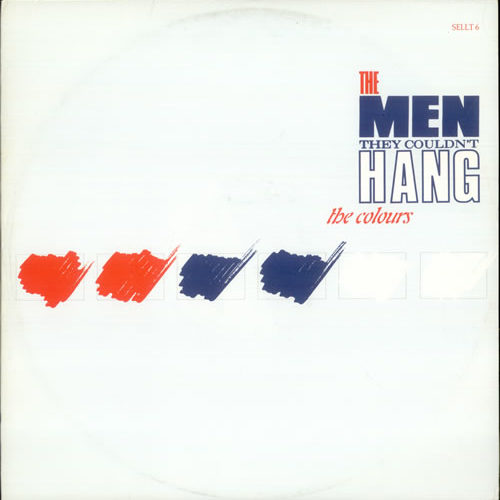The Colours by The Men They Couldn’t Hang
Theme: Challenging law and order: British riots and reforms, Social and cultural revolution, French revolutionary and Napoleonic wars (1792-1815)
This song tells the story of the Nore mutiny in 1797 and the execution of its ‘chief mutineer’ Richard Parker. It illustrates the British government’s fear of protest and potential uprising and the harsh punishments inflicted on those suspected of causing unrest.
In 1797 the Royal Navy was Britain’s principal defence against a French invasion. However, in April a large mutiny broke out at Spithead near Portsmouth. The sailors refused to put to sea. They demanded an increase in wages, which were very poor, better treatment of the sick and wounded, more shore leave, and an improvement in their rations. Many senior naval officers realised that these grievances were justified and did much to ensure that their demands were addressed and that the mutineers were pardoned.
As this mutiny ended so another mutiny broke out at the Nore, east of London. It may have been partially influenced by the radical politics ashore. Delegates from each ship spoke with the commanding admiral. They wanted more shore leave, a regular payment of wages, a fairer share of prize money, the sending ashore of some unpopular officers and the removal of some of the very harsh rules of wartime service. The government, however, felt that they had already conceded too much at Spithead and refused to negotiate with the mutineers, who had in the meantime blockaded the River Thames, preventing any ships from entering or leaving London and threatening to cripple its booming economy.
In early June, the mutiny began to dissolve and on the June 14 1797, HMS Sandwich, the flagship and centre of the mutiny surrendered. Among the crew was Richard Parker, the principal delegate of the mutineers. He, along with several others was hanged, while others were flogged or imprisoned and no concessions were granted by the Admiralty.
Ballads such as Seventeen Bright Stars and The Death of Parker were written about the Spithead and Nore mutinies and are still sung today. Ballads were a way of raising awareness about issues relating to ‘ordinary’ and disenfranchised people. Many were passed down through generations as ‘folk songs’ recalling people and events of the past.
This song about the Nore mutiny – The Colours – was written and recorded in 1988, by the punk folk band The Men They Couldn’t Hang. Although its lyrics tell a story that is 200 years old, its popularity reflects just how relevant its themes of revolution and ‘fighting for your rights’ remain in modern times.
Sources & acknowledgements
This object description and its related educational resources were researched and written by our team of historians and education specialists. For further information see the item’s home museum, gallery or archive, listed above.
- Enquiry Questions
-
Education overview
You can access a range of teachers resources related to this object and more on our education page.
Please also see our glossary of terms for more detailed explanations of the terms used.
-
Curatorial info
- Production Date: 1988
- Creator: The Men They Couldn't Hang
-
Use this image
You can download this image for personal and educational use but please take note of the license type and rights holder information.
- Rights Holder: Courtesy of The Men They Couldn't Hang
- License Type:
No known copyright



